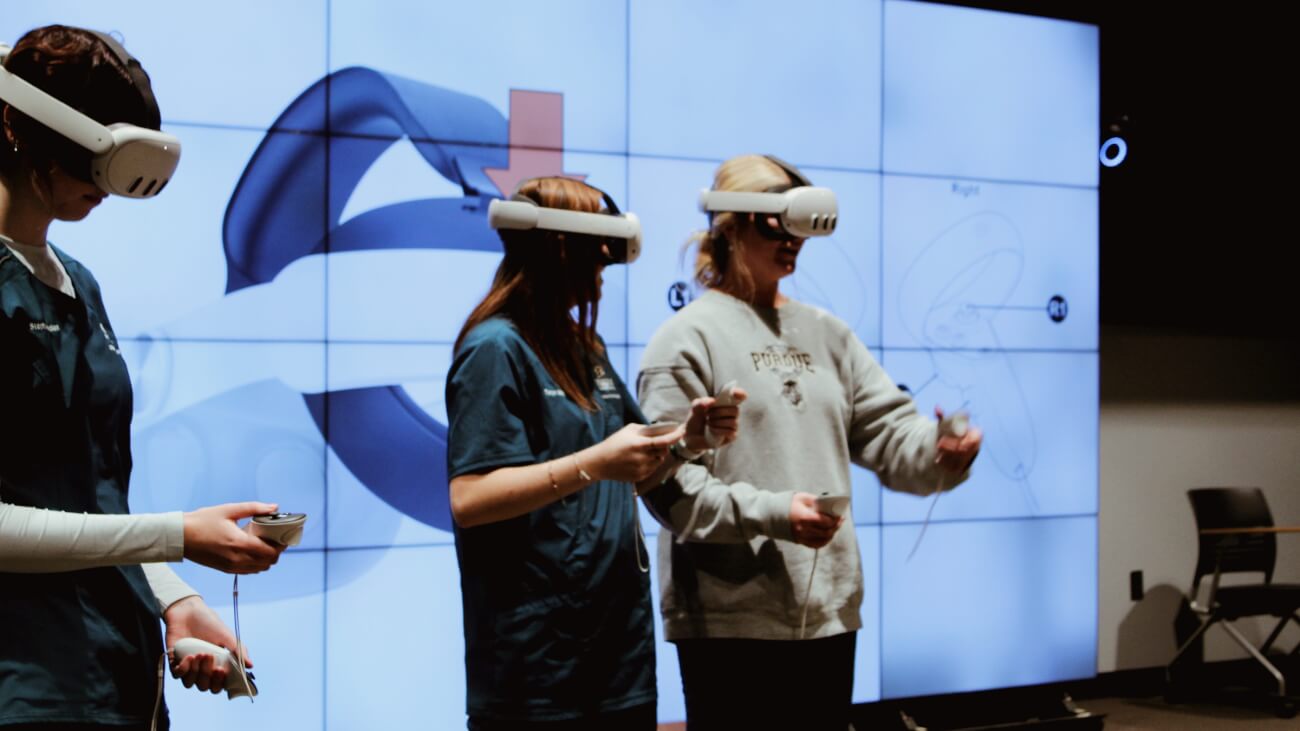Basic Medical Sciences
The Department of Basic Medical Sciences (BMS) offers graduate programs leading to the Master of Science and Doctor of Philosophy degrees.
Integrative Studies for Animal and Human Health
Discovery activities range from studies of molecular and cellular processes to studies of the whole animal, in areas of cell and tissue growth, differentiation, regeneration, and numerous aspects of cancer biology. BMS faculty currently have active research programs in the areas of cancer biology; musculoskeletal biomechanics and skeletal adaptation; neural development, mechanisms of injury and regeneration; tissue dynamic spectroscopy; cellular and molecular screening; and high throughput analysis of cell function. Our directory of faculty research interests describes in more detail the exciting research that is conducted in BMS.
BMS
Department Info
Graduate Program
Cutting-edge research opportunities
Research Specialties
What we're working on
Employment Opportunities
Work with us
BMS Directory
Find our people
News
The latest headlines
Contact Us
Get in touch
Featured Faculty

Elikplimi K. Asem, DVM, PhD
Professor, Physiology
Dr. Elikplimi Asem teaches physiology in the professional DVM and on-campus Veterinary Technology programs. He is a Professor in the Department of Basic Medical Sciences in the College of Veterinary Medicine. Dr. Asem received his DVM. from the University of Veterinary Sciences in Budapest, Hungary. Later, he earned his PhD from Department of Physiology and Pharmacology, School of Medicine, St. Louis University, St. Louis, Missouri. Prior to coming to Purdue University, Dr. Asem was a research associate in the Reproductive Biology Unit of Department of Obstetrics/Gynecology, University of Ottawa, Ottawa, Ontario, Canada.




